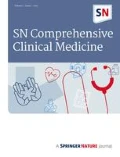Abstract
Type 1 diabetes is a challenge for children, adolescents, and their families as it affects the quality of life and lifestyle of the whole family context. Diabetes onset and its chronic management could be therefore particularly related to post-traumatic stress disorder (PTSD), a group of persistent psychological and physiological symptoms due to a traumatic and severe event. The aim of this study was to assess the rate of PTSD in a group of pediatric patients with T1DM and to evaluate the relationship between parental trauma and quality of life. Forty-nine prepubertal children affected by T1DM and their families were consecutively enrolled in the study. Patients and parents were asked to complete two types of questionnaires: (1) The Impact of Event Scale (IES) questionnaire for the evaluation of PTSD. (2) The PedsQL™3.0 Diabetes Module questionnaire to measure diabetes-specific QOL in both children and their parents. Our data suggest that a clinical level of trauma is present in 66.7% of mothers and 65.5% of fathers of T1D children. Parents with medium or high IES Scores demonstrated lower levels of QoL. The results of this study show a high prevalence of acute post-traumatic stress symptoms in parents of prepubertal children with T1DM. This finding is consistent with data from adult diabetic patients. Our data demonstrated also a relation between parents’ level of traumatism and declared QoL scores. Indeed, our data confirm that the duration of diabetes negatively correlates with the QoL by both, parents and patients.
References
Stuber ML, Shemesh E. Post-traumatic stress response to life-threatening illnesses in children and their parents. Child Adolesc Psychiatr Clin N Am. 2006;15(3):597–609.
Horsch A, McManus F, Kennedy P, Edge J. Anxiety, depressive, and posttraumatic stress symptoms in mothers of children with type 1 diabetes. J Trauma Stress. 2007;20(5):88.
Rechenberg K, Grey M, Sadler L. Stress and posttraumatic stress in mothers of children with type 1 diabetes. Fam Nurs. 2017;23(2):201–25. https://doi.org/10.1177/1074840716687543.
Horowitz M, Wilner N, Alvarez W. Impact of Event Scale: a measure of subjective stress. Psychosom Med. 1979;41(3):209–18.
Filomena Pietrantonio, Luigi De Gennaro, Maria Cristina Di Paolo, Luigi Solano, (2003) The Impact of Event Scale. Journal of Psychosomatic Research 55 (4):389-393
Landolt MA, Ribi K, Laimbacher J, Vollrath M, Gnehm HE, Sennhauser FH. Brief report: posttraumatic stress disorder in parents of children with newly diagnosed type 1 diabetes. J Pediatr Psychol. 2002;27:647–52. https://doi.org/10.1093/jpepsy/27.7.647.
Landolt MA, Ystrom E, Sennhauser FH, Gnehm HE, Vollrath ME. The mutual prospective influence of child and parental post-traumatic stress symptoms in pediatric patients. J Child Psychol Psychiatry. 2012;53:767–74. https://doi.org/10.1111/1469-7610.00201.
Stoppelbein L, Greening L (2006) Brief Report: The Risk of Posttraumatic Stress Disorder in Mothers of Children Diagnosed with Pediatric Cancer and Type I Diabetes. Journal of Pediatric Psychology 32 (2):223-229
Streisand R, Mackey ER, Herge W. Associations of parent coping, stress, and well-being in mothers of children with diabetes: examination of data from a national sample. Matern Child Health J. 2010;14:612–7. https://doi.org/10.1007/s10995-009-0497-7.
Serafini G, Muzio C, Piccinini G, Flouri E, Ferrigno G, Pompili M, et al. Life adversities and suicidal behavior in young individuals: a systematic review. Eur Child Adolesc Psychiatry. 2015;24(12):1423–46.
Hansen JA, Weissbrod C, Schwartz DD, Taylor WP. Paternal involvement in pediatric type 1 diabetes: fathers’ and mothers’ psychological functioning and disease management. Families, Systems, & Health. 2012;30(1):47–59.
Teasdale A, Limbers C. Avoidant coping moderates the relationship between paternal involvement in the child’s type 1 diabetes (T1D) care and parenting stress. J Child Health Care. 2018;22:606–18. https://doi.org/10.1177/1367493518767068.
Stallwood L. Influence of caregiver stress and coping on glycemic control of young children with diabetes. J Pediatr Health Care. 2005;19(5):293–300.
Susan Miller, (2016) Hearing from children who have diabetes. Journal of Child Health Care 3 (1):5-12
Author information
Authors and Affiliations
Corresponding author
Additional information
Publisher’s Note
Springer Nature remains neutral with regard to jurisdictional claims in published maps and institutional affiliations.
This article is part of the Topical Collection on Medicine
Rights and permissions
About this article
Cite this article
Schiaffini, R., Carducci, C., Cianfarani, S. et al. Post-traumatic Stress Disorder in Children Affected by Type 1 Diabetes and Their Parents. SN Compr. Clin. Med. 1, 349–353 (2019). https://doi.org/10.1007/s42399-019-0049-4
Accepted:
Published:
Issue Date:
DOI: https://doi.org/10.1007/s42399-019-0049-4

